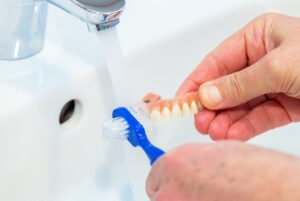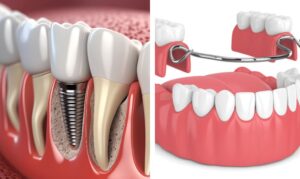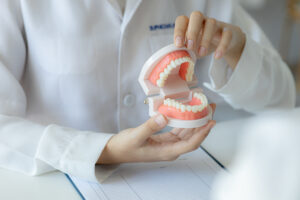Not all smiles are created equal – and for some, it’s not just about teeth. It’s the jaw. Whether it’s discomfort when eating, an uneven bite, or facial imbalance, jaw surgery could be the fix you didn’t know you needed. At Fresh Dental Care Kepong, we see patients with these concerns almost daily, and yes – jaw surgery can make a huge difference, both functionally and aesthetically.
Let’s walk through what jaw surgery in Malaysia looks like, who it’s for, and what recovery feels like. Spoiler: it’s more common – and less scary – than you think.
What Is Jaw Surgery, and Why Would You Need It?
Jaw surgery, or orthognathic surgery, is a procedure that corrects irregularities in the jawbones and realigns the jaws and teeth to improve how they work. It’s not just about aesthetics (though that’s a big bonus); it’s about functionality – helping patients breathe easier, chew properly, and reduce chronic jaw pain or speech issues.
In many cases, jaw surgery is done in combination with orthodontic treatment like braces. So if you’ve been in and out of dental appointments for years and your bite still doesn’t feel right – this might be your next step.
Types of Jaw Surgeries & What They Do
Maxillary Osteotomy (Upper Jaw Surgery)
When your upper jaw sticks out too far, is too short, or isn’t aligned with your lower jaw, maxillary surgery can help. It’s often used to fix overbites, open bites, or crossbites.
This surgery adjusts the position of your upper jaw, making your bite fit together better and giving your mid-face a more natural shape.
Mandibular Osteotomy (Lower Jaw Surgery)
If you’ve got an underbite or your lower jaw seems too prominent (or not prominent enough), mandibular osteotomy might be needed. By repositioning the lower jaw, this procedure corrects alignment and can ease tension caused by an uneven bite.
Bimaxillary Osteotomy (Double Jaw Surgery)
Sometimes, it’s not just one jaw that’s out of place – it’s both. This is where double jaw surgery comes in. It’s often recommended for severe bite issues or conditions like sleep apnea caused by jaw structure. Though recovery takes longer, the results are life-changing.
Genioplasty (Chin Surgery)
Jaw surgery isn’t always about the jaws. Sometimes, the chin plays a big role in facial harmony. Genioplasty adjusts a receding or misaligned chin, and it’s often done together with jaw surgery to create a balanced look.
TMJ Surgery (Temporomandibular Joint Disorders)
Struggling with a jaw that clicks, locks, or constantly aches? That could be TMJ disorder, and when non-surgical treatments like therapy or splints don’t work, surgery might be necessary. There are minimally invasive options like arthroscopy or more involved open-joint surgery, depending on severity.
4 Signs You Might Need Jaw Surgery

Still not sure if this is for you? Here are a few things to watch out for:
- You struggle with chewing or biting food and your teeth never seem to meet properly.
- Your jaw pops or locks, especially when you eat or talk.
- You experience chronic pain in your jaw, neck, or face – even after trying braces or splints.
- You’re breathing through your mouth while sleeping or waking up tired despite a full night’s rest (possible sign of sleep apnea).
If this sounds familiar, jaw surgery could be the answer – especially when orthodontic treatment alone doesn’t solve the issue.
What Prepping for Jaw Surgery Looks Like
First things first: consultation. At Fresh Dental Care in Kepong, we’ll run a series of scans, digital X-rays, and dental assessments to figure out exactly what’s going on with your bite.
Next, we’ll map out a treatment plan – this usually includes pre-surgery orthodontics, a clear breakdown of costs, and guidance on diet and medication. Patients are usually advised to quit smoking and alcohol, maintain good oral hygiene, and stock up on soft foods in preparation.
Inside the Operating Room: The Jaw Surgery Process
Jaw surgery typically takes 2–4 hours, depending on what’s being done. You’ll be under general anesthesia, so no, you won’t feel anything during the procedure.
Surgeons access the jaw through incisions inside the mouth, so there are no visible scars. They reposition the jaw using surgical tools, and then secure everything with titanium plates and screws that stay in permanently (don’t worry – they won’t set off airport metal detectors).
Post-surgery, you’ll spend a few hours in recovery. Most patients are monitored overnight before going home.
What to Expect During the Healing Process
Let’s be real: recovery is not instant. The first few days come with swelling, bruising, and discomfort – but this is totally normal. Most people take 1–2 weeks off work or school, though full healing can take 2–3 months.
You’ll likely be on a liquid or soft food diet, and your jaw might feel stiff at first. Numbness in the chin or lips is also common but usually fades with time. Your dentist will guide you on oral care routines, medications, and how to manage swelling (tip: ice packs are your best friend!).
What Foods Should You Avoid After Jaw Surgery?
Be Kind to Your Jaw – Here’s What to Stay Away From
Look, we get it – after surgery, cravings can hit hard. But if you’ve just gone through jaw surgery, what you eat is just as important as the surgery itself. Your jaw needs time, rest, and gentle care to heal properly. So, if it’s not soft, smooth, or spoonable, it’s best to save it for later.
Foods like nuts, raw vegetables, and crispy chips? Absolutely not. They require a lot of jaw movement and can seriously delay healing or even damage the surgical site. You’ll also want to avoid crunchy snacks like toast or popcorn – not only are they rough, but their tiny, sharp bits can sneak into healing wounds and cause irritation or infection.
Sticky and chewy treats like caramel, chewing gum, or jerky? Those are off the table too. They stick to your teeth, tug at your jaw, and can dislodge stitches or affect your bite alignment during recovery.
Spicy or acidic foods, like citrus fruits or that extra-hot sambal you love, can cause painful burning sensations on sensitive, healing tissue. And carbonated drinks and alcohol? Both can dehydrate you and interfere with the body’s natural healing process.
Even very hot foods – like steaming soup or drinks straight from the kettle – can increase swelling and inflammation. So let things cool down before they go near your mouth.
To put it simply: if it requires chewing effort, causes a sting, or creates pressure, it’s best avoided. Stick with cool, smooth, and nutritious options like blended soups, porridge, yogurt, and smoothies. Your future self – and your jaw – will thank you.
3 Tips for a Smoother Healing Journey
Recovering from jaw surgery doesn’t have to be painful or complicated. In fact, with a few smart habits, you can glide through the healing process more comfortably.
Sleeping Position Matters
Next up: how you sleep matters. Keeping your head slightly elevated while you rest reduces swelling and speeds up fluid drainage. A couple of pillows or a wedge cushion can make all the difference.
Stay Hydrated, Always
Hydration is important too, but don’t rush it. Sip water slowly throughout the day instead of gulping. It helps with recovery and keeps your mouth from drying out, especially when you’re not able to brush as usual.
Don’t Miss Your Doctor’s Appointments!
Lastly, don’t skip your follow-up visits. It might be tempting to think “I feel okay, so I’m fine.” But we need to track your progress closely to make sure the healing is on point. Whether it’s a minor tweak or a major adjustment, regular check-ins help us catch issues before they become serious.
What Are the Risks of Jaw Surgery?
Understanding the Possible Complications
Let’s be real – jaw surgery is a big deal. While it’s safe and commonly performed, there are still a few risks to keep in mind.
Infection and bleeding.
These can usually be prevented with proper post-op care, like keeping your mouth clean and avoiding foods that irritate the healing site. If infection does happen, it’s manageable – but early detection is key.
Risk of Nerve damage
This can lead to temporary numbness in areas like the chin or lower lip. It often goes away after a few weeks or months, but in rare cases, it can linger longer.
Relapse
There’s also the chance of relapse, where the jaw slowly shifts back to its old position. This is rare and usually only happens if post-surgery care isn’t followed properly or if the bone doesn’t heal as expected.
Bone Fixation Coming Off
The titanium plates and screws used to hold the jaw in place are generally very safe. But in rare cases, they might need adjusting or removal if they cause irritation.
Other than that, if you experience severe swelling, constant pain, fever, or pus, don’t wait. Reach out to your surgeon immediately. At Fresh Dental Care Kepong, we’re always here if something feels off.
Long-Term Results: Is It Worth It?
Spoiler Alert: Yes, It Totally Is
Jaw surgery isn’t just about fixing a bite – it’s about transforming your life. Patients often walk out months later with better chewing ability, easier breathing, and more confidence than they’ve had in years.
Functionally, you’ll feel the difference every time you eat, speak, or even sleep. If you’ve suffered from TMJ pain or sleep apnea, jaw surgery can be a game-changer.
And let’s not forget the aesthetics. Many people choose jaw surgery because of facial asymmetry or an imbalanced profile. The procedure realigns your jaw, bringing balance to your facial features and giving you a more harmonious appearance.
But beyond the physical changes, the emotional impact is real. We’ve seen patients regain confidence, feel more comfortable in social settings, and smile without hesitation. And the best part? With regular dental care and a bit of mindfulness, the results last a lifetime.
Thinking about taking the leap? Book a consultation with Fresh Dental Care in Kepong. Our team is here to walk you through every step – from scan to smile – with compassion, expertise, and honest advice. Reach out via WhatsApp today and let’s talk about what jaw surgery could do for you.
Is It Soft Tissue Grafting Painful?
Not really. The procedure is done under anesthesia. You might feel mild soreness or swelling afterward, but it’s usually manageable with medication.
How Successful Is It?
Very. Bone grafting has a success rate above 90%, especially when patients follow proper aftercare.
Are There Risks in Soft Tissue Grafting?
Yes, but they’re rare. Possible issues include infection, minor bleeding, or graft rejection. If you notice prolonged pain, pus, or high fever – contact your dentist immediately.
How Long Does It Take For Soft Tissue Grafting to Heal?
On average, the graft will take around 1-2 weeks to fully heal. If there’s more than one area operated, it may take longer.
Do I Need to Have Soft Tissue Grafting Done For Dental Implant?
Without enough bone, implants can fail. Bone grafting ensures the implant has something solid to hold onto. It improves stability, lifespan, and keeps your face from looking sunken over time.







